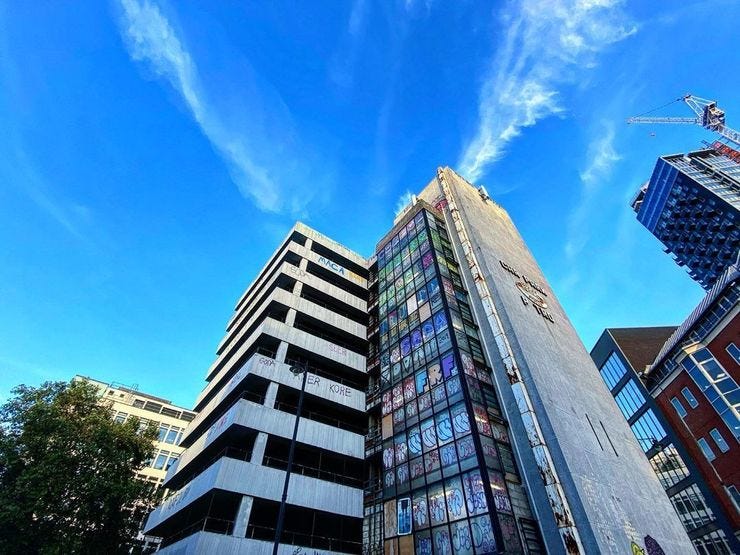Logging off; Future of work; Browsing the web
💡Think
I’ve been asking people recently here they see the design and / or tech industry shifting in the next 5 years. It’s the kind of question I hate, because there’s no real right or wrong answer, but these kinds of things are useful to see how people think.
The thing I land on though is, should we even be putting energy into trying to predict the future? Or should we be content with what we have and take every day as it comes? Some of the articles in today’s newsletter are centred around this debate, and I’d love to know what you all think.
📷 Look
📖 Read
❶ Logging off in 2021
Do you ever just want to…not open your phone or laptop for a while? Any time we enter the realm of the internet, we’re hit hard with gloomy stories or that day’s “one main character”. Taking social media breaks is nothing new, but maybe we could all make it a bit more regular to save our brains.
—
❷ The future of work should mean working less
This long read is written mostly from an American perspective, but is globally relevant. It’s an opinion piece about how our “return to work” is changing perceptions about what work is and what it should be. The author loops in quotes for people vowing to prevent work from dominating their lives, sacrificing quality time with loved ones, and generally being prioritised higher than…living.
—
❸ Browsing the web in 2021 is a terrible experience
The title sells itself really, doesn’t it? Even so, I think we can all agree that the amount of cookie banners, newsletter sign-up forms, and discount popups is making our internet experience exhausting and frustrating. The author of this piece even goes so far as to say the internet has become “possessed”.
—
Bonus round
Here’s the recording from an event I ran a few weeks ago about ethical design, with speakers from Bulb Energy and Metalab
🎧 Listen
Safe spaces
The idea of ‘safe space’ has shifted into the arts – from theatre, public galleries and museums to spoken word, music and dance. It has become an idea to community and identity-based art collectives and groups as well. The question is though, can you have them in the arts, given that art is typically created with friction and breaking boundaries or new ideas?
Listen to this podcast (29 minutes)
Apple Podcasts – Spotify
🙌 Share
I’d really appreciate it if you would share my tweet, or forward this to a friend.
If you’re really enjoying it, purchasing a subscription would let me know I’m producing quality.
🙏 Thanks
Have a great week,
Luis Ouriach
@disco_lu
Founding member special shoutouts:
Kevin Fernandez (@kvnfz) Karl Barker George Sumpster



